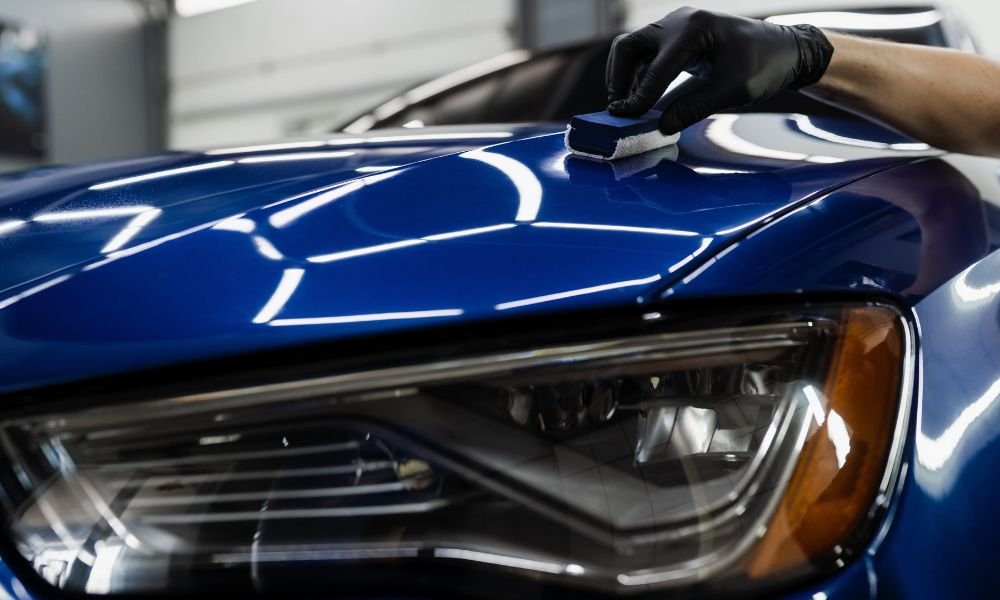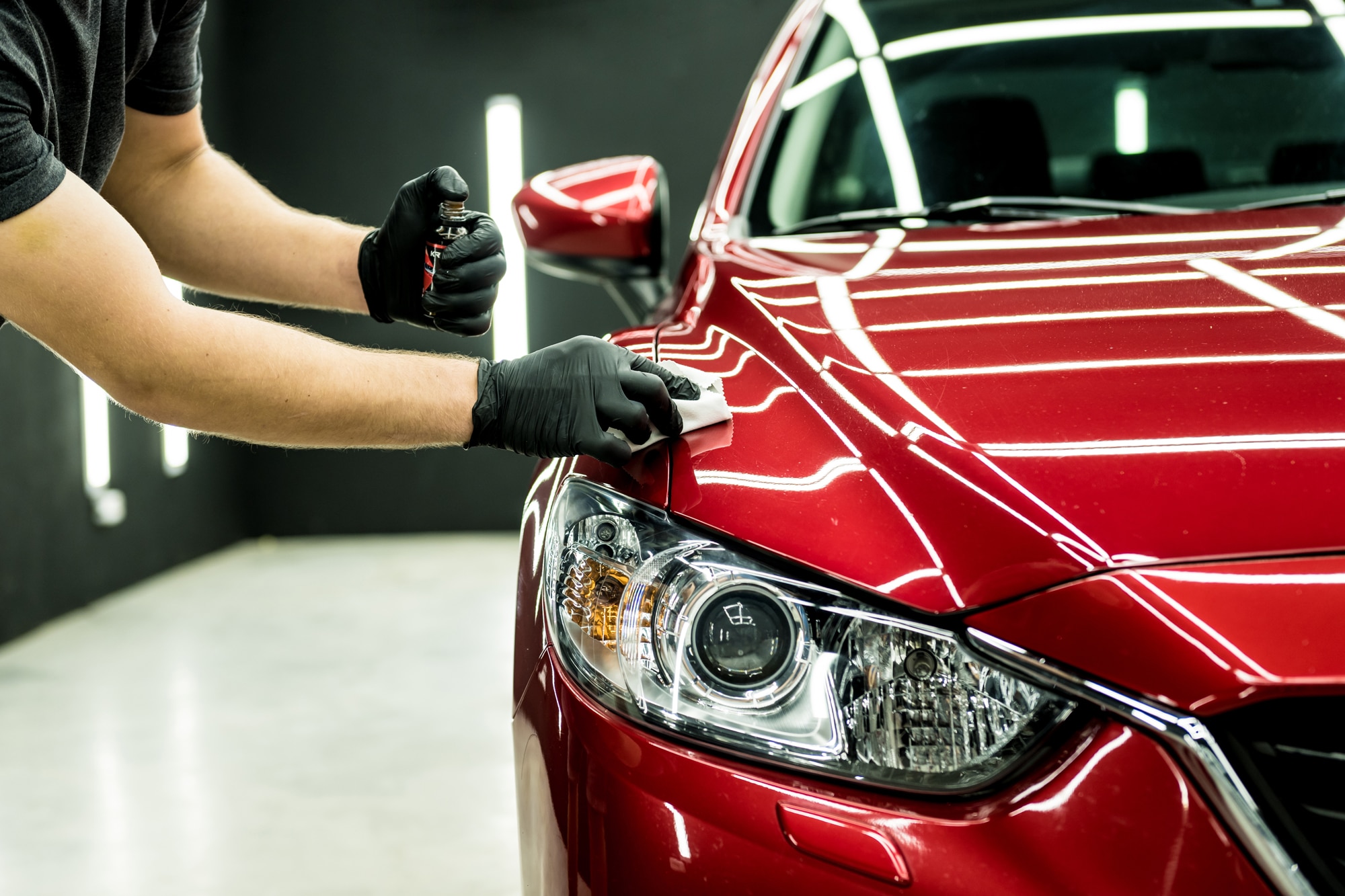A Comprehensive Overview to the Sorts Of Ceramic Coating on the Market
Ceramic finishings have actually arised as a critical option throughout different markets due to their special homes and applications. As we discover the distinct characteristics and applications of these coverings, the ramifications for performance and durability come to be significantly apparent, increasing inquiries regarding which type may ideal match your needs.
Comprehending Ceramic Coatings
Ceramic coatings are sophisticated protective options that have actually gotten appeal in numerous industries, especially in automobile and aerospace applications. These coverings include a fluid polymer that, when cured, forms a resilient, hydrophobic layer externally of the substratum. This layer gives boosted resistance to environmental contaminants, UV radiation, and chemical direct exposure, consequently prolonging the life and aesthetic charm of the underlying material.
The essential element of ceramic coatings is silica, which adds to their firmness and sturdiness. The application procedure generally includes surface preparation, application of the finishing, and curing, which can be attained via warm or UV light. Once healed, ceramic layers display exceptional bonding buildings, enabling them to adhere highly to a variety of surface areas, consisting of steels, plastics, and glass.
In enhancement to their protective functions, ceramic coatings additionally use ease of upkeep. Their hydrophobic nature reduces the adherence of dirt and grime, making cleaning simpler and less constant. Overall, the adoption of ceramic coatings represents a significant advancement in surface defense modern technology, giving both useful and visual advantages across numerous fields.
Sorts Of Ceramic Coatings
Numerous sorts of ceramic finishings are offered, each created to fulfill particular efficiency needs and applications - Car Detailing. One of the most usual types include:
Silica-based Coatings: These finishes primarily contain silicon dioxide and are recognized for their sturdiness and chemical resistance. They are extensively made use of in automotive and industrial applications.
Titanium Dioxide Coatings: Renowned for their photocatalytic buildings, titanium dioxide layers are often applied in environments where self-cleaning and antifungal properties are desirable, such as in structure materials and automobile finishes.
Zirconia Coatings: Characterized by their high-temperature security and thermal resistance, zirconia layers are made use of in applications such as wind turbine engines and high-performance automobile components.
Alumina Coatings: Showing superb firmness and thermal stability, alumina coatings are regularly utilized in wear-resistant applications, including cutting devices and industrial machinery. - Auto Detailing
Crossbreed Coatings: Integrating the homes of numerous products, crossbreed coatings provide enhanced performance attributes, making them appropriate for distinct and demanding applications.
Each kind of ceramic covering serves distinctive objectives, allowing customers to select one of anchor the most ideal option based on details ecological conditions and performance demands.
Advantages of Ceramic Coatings
Ceramic coatings, in specific, offer various benefits that make them increasingly preferred among producers and consumers alike. These coatings are resistant to scratches, chemicals, and UV rays, making sure that the underlying surface area continues to be secured over time.
In addition to longevity, ceramic coverings supply exceptional hydrophobic buildings, enabling simple cleansing and maintenance. This water-repellent nature lessens the adherence of dust, gunk, and various other pollutants, which can extend the visual charm and performance of the surface. Additionally, ceramic finishings can dramatically boost thermal resistance, making them excellent for applications that withstand heats.

Application Refine
When using ceramic finishings, a meticulous technique is essential to attain optimum results. A tidy surface area ensures appropriate attachment of the finishing.
When the surface is prepped, the following step is to use the ceramic covering. This can be done utilizing an applicator pad or a microfiber towel, making read this sure also insurance coverage. It is crucial to function in tiny areas to maintain control and stop early healing. The covering must be used in slim layers, as thicker applications can result in unequal coatings.
After application, the covering calls for a specific curing time, commonly ranging from a couple of hours to a full day, depending upon the item. During this moment, it is essential to prevent direct exposure to dampness or contaminants. A mild buffing might be essential after healing to enhance the gloss and remove any high spots. Complying with these steps faithfully will take full advantage of the effectiveness and longevity of the ceramic finishing, providing a resilient protective layer for the surface area.
Maintenance and Longevity
To make certain the durability and performance of a ceramic finishing, normal maintenance is crucial. Ceramic coverings, recognized for their sturdiness and safety qualities, require certain treatment routines to maximize their life-span and performance.
Along with regular washing, regular inspections are important. Seek signs of wear or damage, such as Recommended Reading hydrophobic homes lessening or surface imperfections. If required, a light gloss may be related to rejuvenate the finish without stripping it away.
Additionally, the application of a booster spray can boost the coating's hydrophobic effects and recover its gloss. This is especially beneficial for finishes that have actually been in usage for an extensive period. Inevitably, by sticking to these upkeep practices, one can substantially extend the life of a ceramic layer, making sure that it remains to supply optimal defense versus environmental elements and keep the aesthetic charm of the automobile.
Conclusion
